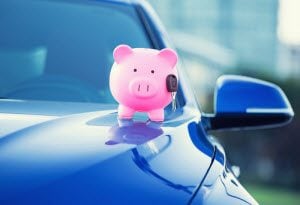If you're thinking about purchasing a used car, you may be overwhelmed and confused by the prospect of having to pay for such a large expense. Our team at Fred Beans Used knows that buying a car can be extremely intimidating, so we've put together this helpful guide to how to budget a used car.
You don't want to jump into an expensive car payment without understanding what you're getting yourself into. This guide will help you fully understand the total cost of owning a vehicle, so you can make a good decision as to how much you can afford to spend on your used car. Soon, you'll be cruising around Philadelphia, Doylestown, and Flemington without a care in the world!
Get Started
You'll want to start your calculations by determining your current income (don't forget to account for taxes) and expenses. The best rule of thumb when determining your possible monthly car payment is to spend no more than 15% of your monthly income on your car payments.
Adjust this figure to suit your situation; for example, if you already have a lot of monthly payments such as rent, student loans, a mortgage, bills, etc., you may want to spend less than that on your car payments.
Additional Costs
Don't forget that there are a lot of additional expenses associated with owning a car that you won't see up front. You'll want to account for these, too, especially the initial costs for taxes, registration, title fees, and documentation fees. After that, you'll be paying for fuel and insurance for your vehicle on a regular basis.
Financing
 If you'll be taking out a loan to finance your car purchase, you'll want to do your research in order to find the best possible rate. The best way to save money in the long run is to put down a large down payment. Ideally, you should aim to put down about 20 percent of the car's total price. The larger the down payment, the less your car will cost you in the long run.
If you'll be taking out a loan to finance your car purchase, you'll want to do your research in order to find the best possible rate. The best way to save money in the long run is to put down a large down payment. Ideally, you should aim to put down about 20 percent of the car's total price. The larger the down payment, the less your car will cost you in the long run.